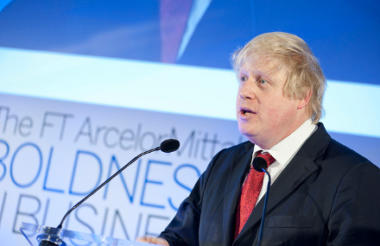Not a day has gone by in recent weeks where we are not hit by more sombre news from charities. With incomes plummeting, and no end to the funding crisis in sight, organisations are making difficult decisions to cut services, make staff redundant or even close down.
Meanwhile, pressure on many charity services continues to increase, with the most vulnerable in society expected to be hardest hit by brutal economic conditions.
Sadly, this is not surprising to anyone who has been paying attention to what those on the frontline have been saying. It is, in fact, exactly what charities said would happen back in March.
Most in the charity sector have considered the government's financial support package to be insufficient if we are to prevent serious damage to the sector and those it serves.
Yet at the same time, government has offered warm words about wanting to to “maximise” the sector's role in the months ahead. Indeed, a month ago the prime minister Boris Johnson asked Danny Kruger to investigate how this might be achieved.
It is reasonable to ask how this can be achieved given the context charities face.
Charities are on the brink
A funding crisis of this magnitude and scope could not have been anticipated. If last year we had seen an annual report that said, “we keep reserves that equate to 12 months’ expenditure in case there is a global health crisis that halts almost all income generating activity,” we would have scoffed.
As result, charities are, to put bluntly, on the brink.
For charities such as Age UK Suffolk and the Animal Health Trust, which were already struggling financially going into the crisis, the financial shock seems to have proved too great and they have been forced to close.
What then happens as a result is that when one charity closes, it inevitably piles pressure onto other charities operating in the same field.
Meanwhile, many charities are cutting back on services and making staff redundant. Cancer Research UK, RSPCA, Blood Cancer UK and the Shakespeare Birthplace Trust are just some examples of charities that have begun consultations on redundancies in recent weeks.
Optimism for the Kruger review
The government's review does have some heft behind it. Prior to becoming an MP, Kruger was part of Johnson’s team at Number Ten and before that had written the government’s Civil Society Strategy document.
Giving Kruger his brief, Johnson said: “I would like you to consult with civil society organisations, local authorities, our colleagues in parliament, and across government to develop proposals to maximise the role of volunteers, community groups, faith groups, charities and social enterprises, and contribute actively to the government’s levelling up agenda.”
The “levelling up agenda” in many ways harks back to the “shared society” that Theresa May envisioned and to David Cameron’s “big society”, so it is obviously tempting to treat Johnson’s promise with scepticism.
Nevertheless, Kruger is well respected among charity leaders, and publicly there was considerable optimism about what he could deliver.
To that end, charities have gamely submitted ideas to Kruger that were, for the most part, very similar to things they have already been telling government for some time.
The coalition of umbrella bodies that makes up the Never More Needed campaign said on its website that charities needed to be treated as an “equal partner” by government. They also reiterated a five-point plan sent to the chancellor earlier in the month, which includes the call for a “Gift Aid Emergency Relief Package”.
Meanwhile the charity sector think tank NPC called for “three big things” to unlock the sector's potential; namely “improving how government works with charities directly”, faciliating effective infrastructure, and ensuring targeted regulation.
Tom Collinge, policy manager at NPC, said: “Charities and philanthropy can achieve things governments can’t and have insights governments don’t. So, everyone in government should be thinking about the role of charities in how policy is designed, implemented and reviewed. At every stage, policy makers should be asking “could civil society do this?” and commissioning in a way which includes charities.”
Elsewhere, the Small Charities Coalition was more critical of the process. Its submission to Kruger it warned that the review was being carried out too quickly, which “fails to allow for meaningful and purposeful engagement”.
It also had concerns about the overall brief, saying: “The review has a limited brief and does not reflect the breadth of experiences of civil society.
“Whilst the mention of faith groups is welcome, it by no means reflects the breadth of inequality that small charities deal with, especially in relation to BAME, disability, LGBT, women’s equality and people on a low income, and there is no recognition of the need to engage with small charities specifically, a large number of which (but not all) work at the hyper-local level.”
Time for action
Kruger’s deadline to deliver recommendations to the Boris Johnson was Friday. Hopefully the PM spent his weekend mulling over the recommendations and is poised to implement.
Since the beginning of this crisis, the government has treated the sector shabbily. This has ranged from lack of clarity about whether charities could access some of the schemes set up for the private sector, to dithering over agreeing a tailored package for the sector (not to mention the delays in distributing it).
This review presents an opportunity to reset the relationship between charities and government. It is imperative politicians treat take it seriously and act.
How quickly the government responds to the suggestions put forward and acts on the increasing body of evidence about the devastating impact of the crisis on charities, and by extension the vulnerable people they support, will the true test of Johnson’s real commitment to the “levelling up agenda”.
Related articles











